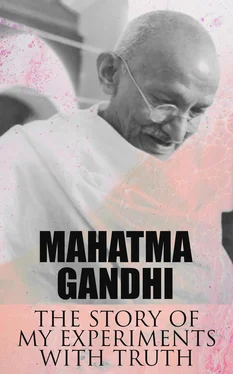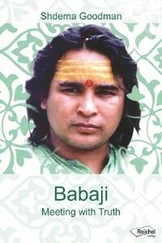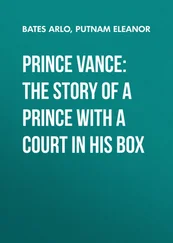1 ...7 8 9 11 12 13 ...27 But the fact that I had learnt to be tolerant to other religions did not mean that I had any living faith in God. I happened, about this time, to come across Manusmriti 9which was amongst my father’s collection. The story of the creation and similar things in it did not impress me very much, but on the contrary made me incline somewhat towards atheism.
There was a cousin of mine, still alive, for whose intellect I had great regard. To him I turned with my doubts. But he could not resolve them. He sent me away with this answer: ‘When you grow up, you will be able to solve these doubts yourself. These questions ought not to be raised at your age.’ I was silenced, but was not comforted. Chapters about diet and the like in Manusmriti seemed to me to run contrary to daily practice. To my doubts as to this also, I got the same answer. ‘With intellect more developed and with more reading I shall understand it better,’ I said to myself.
Manusmriti at any rate did not then teach me ahimsa. I have told the story of my meat-eating. Manusmriti seemed to support it. I also felt that it was quite moral to kill serpents, bugs and the like. I remember to have killed at that age bugs and such other insects, regarding it as a duty.
But one thing took deep root in me—the conviction that morality is the basis of things, and that truth is the substance of all morality. Truth became my sole objective. It began to grow in magnitude every day, and my definition of it also has been ever widening.
A Gujarati didactic stanza likewise gripped my mind and heart. Its precept—return good for evil—became my guiding principle. It became such a passion with me that I began numerous experiments in it. Here are those (for me) wonderful lines:
For a bowl of water give a goodly meal;
For a kindly greeting bow thou down with zeal;
For a simple penny pay thou back with gold;
If thy life be rescued, life do not withhold.
Thus the words and actions of the wise regard;
Every little service tenfold they reward.
But the truly noble know all men as one,
And return with gladness good for evil done.
XI PREPARATION FOR ENGLAND
Table of Contents
I passed the matriculation examination in 1887. It then used to be held at two centres, Ahmedabad and Bombay. The general poverty of the country naturally led Kathiawad students to prefer the nearer and the cheaper centre. The poverty of my family likewise dictated to me the same choice. This was my first journey from Rajkot to Ahmedabad and that too without a companion.
My elders wanted me to pursue my studies at college after the matriculation. There was a college in Bhavnagar as well as in Bombay, and as the former was cheaper, I decided to go there and join the Samaldas College. I went, but found myself entirely at sea. Everything was difficult. I could not follow, let alone take interest in, the professors’ lectures. It was no fault of theirs. The professors in that College were regarded as first-rate. But I was so raw. At the end of the first term, I returned home.
We had in Mavji Dave, who was a shrewd and learned Brahman, an old friend and adviser of the family. He had kept up his connection with the family even after my father’s death. He happened to visit us during my vacation. In conversation with my mother and elder brother, he inquired about my studies. Learning that I was at Samaldas College, he said: ‘The times are changed. And none of you can expect to succeed to your father’s gadi without having had a proper education. Now as this boy is still pursuing his studies, you should all look to him to keep the gadi. It will take him four or five years to get his B. A. degree, which will at best qualify him for a sixty rupees’ post, not for a Diwanship. If like my son he went in for law, it would take him still longer, by which time there would be a host of lawyers aspiring for a Diwan’s post. I would far rather that you sent him to England. My son Kevalram says it is very easy to become a barrister. In three years’ time he will return. Also expenses will not exceed four to five thousand rupees. Think of that barrister who has just come back from England. How stylishly he lives! He could get the Diwanship for the asking. I would strongly advise you to send Mohandas to England this very year. Kevalram has numerous friends in England. He will give notes of introduction to them, and Mohandas will have an easy time of it there.’
Joshiji—that is how we used to call old Mavji Dave—turned to me with complete assurance, and asked: ‘Would you not rather go to England than study here?’ Nothing could have been more welcome to me. I was fighting shy of my difficult studies. So I jumped at the proposal and said that the sooner I was sent the better. It was no easy business to pass examinations quickly. Could I not be sent to qualify for the medical profession?
My brother interrupted me: ‘Father never liked it. He had you in mind when he said that we Vaishnavas should have nothing to do with dissection of dead bodies. Father intended you for the bar.’
Joshiji chimed in: ‘I am not opposed to the medical profession as was Gandhiji. Our Shastras are not against it. But a medical degree will not make a Diwan of you, and I want you to be Diwan, or if possible something better. Only in that way could you take under your protecting care your large family. The times are fast changing and getting harder every day. It is the wisest thing therefore to become a barrister.’ Turning to my mother he said: ‘Now, I must leave. Pray ponder over what I have said. When I come here next I shall expect to hear of preparations for England. Be sure to let me know if I can assist in any way.’
Joshiji went away, and I began building castles in the air.
My elder brother was greatly exercised in his mind. How was he to find the wherewithal to send me? And was it proper to trust a young man like me to go abroad alone?
My mother was sorely perplexed. She did not like the idea of parting with me. This is how she tried to put me off: ‘Uncle,’she said, ‘is now the eldest member of the family. He should first be consulted. If he consents we will consider the matter.’
My brother had another idea. He said to me: ‘We have a certain claim on the Porbandar State. Mr. Lely is the Administrator. He thinks highly of our family and uncle is in his good books. It is just possible that he might recommend you for some State help for your education in England.’
I liked all this and got ready to start off for Porbandar. There was no railway in those days. It was a five days’ bullock-cart journey. I have already said that I was a coward. But at that moment my cowardice vanished before the desire to go to England, which completely possessed me. I hired a bullock-cart as far as Dhoraji, and from Dhoraji I took a camel in order to get to Porbandar a day quicker. This was my first camel-ride.
I arrived at last, did obeisance to my uncle, and told him everything. He thought it over and said: ‘I am not sure whether it is possible for one to stay in England without prejudice to one’s own religion. From all I have heard, I have my doubts. When I meet these big barristers, I see no difference between their life and that of Europeans. They know no scruples regarding food. Cigars are never out of their mouths. They dress as shamelessly as Englishmen. All that would not be in keeping with our family tradition. I am shortly going on a pilgrimage and have not many years to live. At the threshold of death, how dare I give you permission to go to England, to cross the seas? But I will not stand in your way. It is your mother’s permission which really matters. If she permits you, then godspeed! Tell her I will not interfere. You will go with my blessings.’
‘I could expect nothing more from you, ‘said I. ‘I shall now try to win mother over. But .would you not recommend me to Mr. Lely?’
Читать дальше












